Love is simple. But relationships are complicated. Relationships, whether romantic or not, can be the greatest source of happiness, fulfillment, satisfaction, and motivation. Our relationships define who we are – make us feel more capable and confident and strongly influence our emotional and mental health.
Toxic relationships, however, especially romantic ones, can leave us feeling frustrated, exhausted, and emotionally broken.
When we love someone, we often accept certain behaviors from our partners that harm your mental health and self-esteem. And often these behaviors are so subtle that we ignore it and choose to stay in toxic and unhappy relationships.
Yes, every relationship has its ups and downs, but when love, compassion, and respect is missing from your relationship, you may want to make better decisions and start protecting your mental health.
Here are a few relationship deal-breakers that you should never accept in a relationship no matter what –
10 Toxic Behaviors You Should Never Tolerate in a Relationship
1) Abuse
This one goes without saying, but unfortunately, many people, mostly women, stay in relationships where they are regularly abused by their partners. Abuse, whether emotional, verbal, physical, or sexual, can never be a sign of a healthy relationship.
Emotional and verbal abuse can be subtle and can completely destroy your self-esteem. The more you tolerate emotional abuse, the more you will lose your self-confidence and become increasingly dependent on your abusive partner. And you don’t really want that do you?
If your partner, or family member, becomes physically violent, hurts you in any way, or exploits you sexually, then it’s a clear sign for you to leave the relationship.
Sure people fight in relationships all the time, but when you are at the receiving end every single time, then it is nothing but abuse. You can always choose to walk away.
2) Manipulation and control
Does your partner tell you what to do even when you don’t want to? Do you meet their expectations without asking any questions? Do they freak out when you don’t do what they want?
Toxic partners often control and manipulate you by making you feel guilty or love-bombing you, leaving you feeling confused.
They want you to think, feel and experience life the same way they do which can be damaging for your mental health and lifestyle. Of course, we need to make compromises and sacrifices in a relationship, but it needs to happen willingly, from both sides. If they are always telling you how to live your life, then you need to set some boundaries and communicate openly with your partner.
Identifying an overly controlling partner may not be easy all the time, but you should spot the red flags and refuse to tolerate such manipulation in your relationship.
Read 5 Types Of Psychological Manipulation And How To Deal With Them
3) Being unapologetic
Does your partner take responsibility for their actions and behaviors? Or do they always shift the blame and never apologize for the mistakes they made?
Accepting our mistakes and apologizing for them can be difficult for some people, but if they always shift the blame because of their low self-esteem, then it is something you should never tolerate.
When your partner repeatedly refuses to take responsibility and blame you instead, they dismiss your feelings. Instead of owning up to their mistakes, they become defensive and start pointing fingers to manage their own emotions. They would rather be emotionally distant and angry than address your emotional needs at the moment.
When you accept such behavior, you deliberately kill all emotional closeness in your relationship.
Read 9 Signs of An Untouchable And Unapologetically Powerful Woman
4) Cheating
Infidelity in a relationship is a clear sign of disrespect and a breach of trust. But sometimes, we ourselves can be at fault and drive our partner into the arms of another person. If it is an isolated incident and your partner is remorseful, then there may be a chance that you can make your relationship work.
But if cheating has become a habit and your partner doesn’t even care how much their toxic behavior may hurt you, then you should simply walk away. Trust, once broken, can never be put back together.
If your partner does not value you or your relationship and if they are more interested in someone else, then you should never tolerate such disrespect.
5) Lying and dishonesty
Yes, all of us lie from time to time, sometimes out of fear, sometimes to protect the other person from getting hurt. But when your partner lies repeatedly for their own personal gains, then you don’t have to tolerate it in the name of love.
Dishonesty in a relationship can have lasting consequences that can leave you feeling empty, used, and abused. If your partner always gives you reasons to doubt them and tries to rationalize their lies when they get caught, then you might want to take it as a big red flag. Lying is downright disrespectful and should never be tolerated in a relationship.
6) Being clingy and needy
Living with a needy partner who is insecure and has poor self-esteem can be very exhausting and suffocating. Of course, all of us want to feel that we are loved and needed in a relationship, but constant neediness can quickly turn a healthy relationship into a toxic one. What’s more, it can even affect your mental health and leave you feeling drained.
This is why you should never tolerate an overly needy and clingy partner who needs you for everything in their life. Being independent in a relationship is as important as spending quality time with your partner.
It is not your job to make your partner happy, but you should always support them to be more independent in life. This can help you avoid things that should not be tolerated in a relationship.
7) Trespassing boundaries
Personal boundaries help to build the core of a healthy relationship. But when your partner encroaches upon your boundaries without permission, things can quickly turn toxic.
Personal boundaries show what is acceptable for you and what is not. It tells your partner how you want to be treated. By not respecting your boundaries, they can become controlling and force you to make unnecessary changes, which can lead to repeated arguments over time.
Regardless of how tolerant you may be, you will eventually burn out which can be disastrous for both your relationship and your mental health.
So communicate your boundaries clearly to your partner and be adamant about not tolerating any trespassers.
8) Negativity
All relationships have some negative aspects, but constant and excessive negativity can be damaging for your relationship. Pessimistic people have low energy and often transfer the same energy into their relationships. If your partner has a negative outlook on life, their negativity will eventually get to you, transforming your positive attitude into a negative one.
Soon you will become irritated and frustrated and start displaying toxic behaviors in your relationships. Avoid being in a relationship with someone with such negativity as they will pull you down along with them.
Negativity should never be accepted or tolerated. Encourage your partner to develop a more positive mindset, and if they are beyond the point of no return, choose to walk away to protect your mental peace.
No one wants to be in a toxic relationship.
Here are some other toxic behaviors that you should never tolerate in a relationship –
- They force you to change
- They do not communicate openly
- They are emotionally unavailable
- They invade your privacy
- They isolate you from your friends and family
- They body shame or slut shame you
- They criticize and judge you
- They make you feel guilty for not having sex
- They are highly insecure and jealous
- They talk over you or silence you
- They never support your dreams and aspirations
- They disrespect you and make you feel dumb
These are some red flags that you should look for in a toxic relationship. When someone loves you, they will always try to do what’s best for you, and even if they make mistakes, they will always find a way to fix it without you asking them for it.
If you are unhappy in your relationship, then you don’t need to force yourself to tolerate toxic and negative behaviors all the time. So walk away if you have to, but always choose yourself first.
You deserve to be loved. You deserve to be happy. Let us know about your thoughts and experiences in the comments section below. Want to share your wisdom with the world?
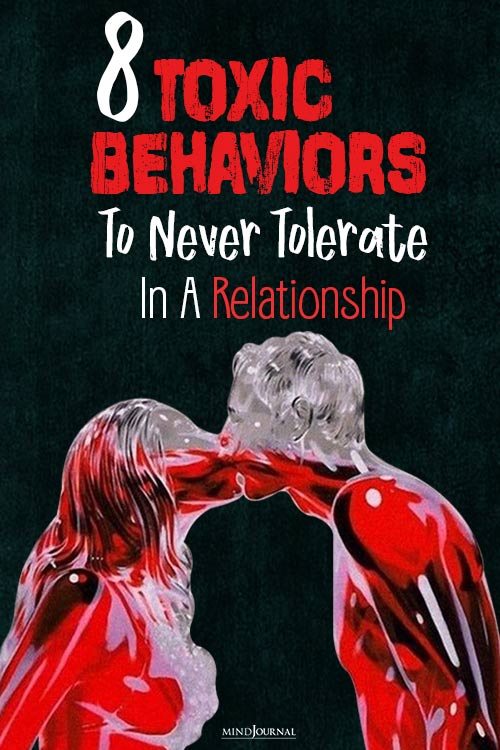
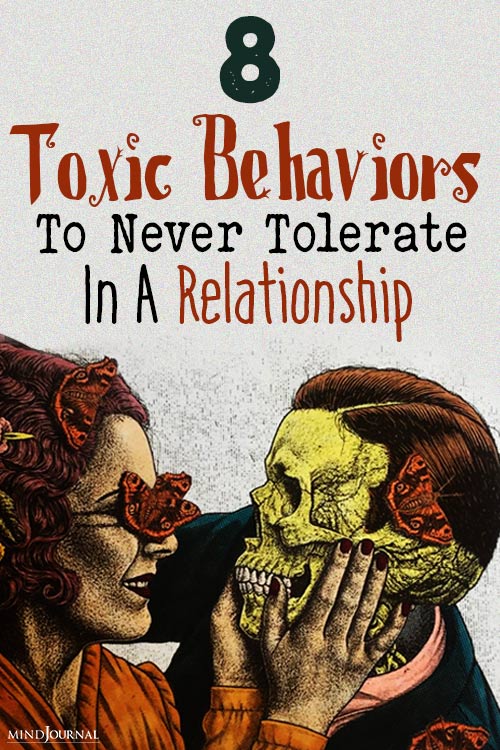
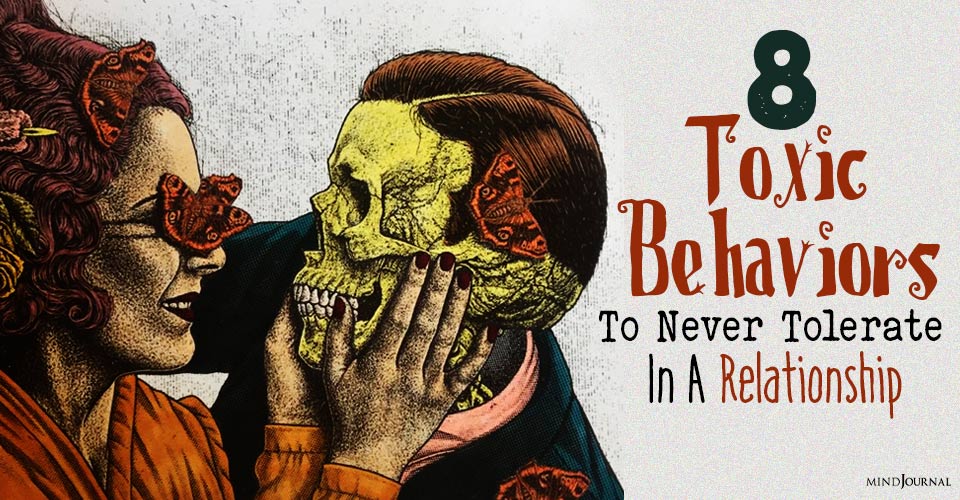



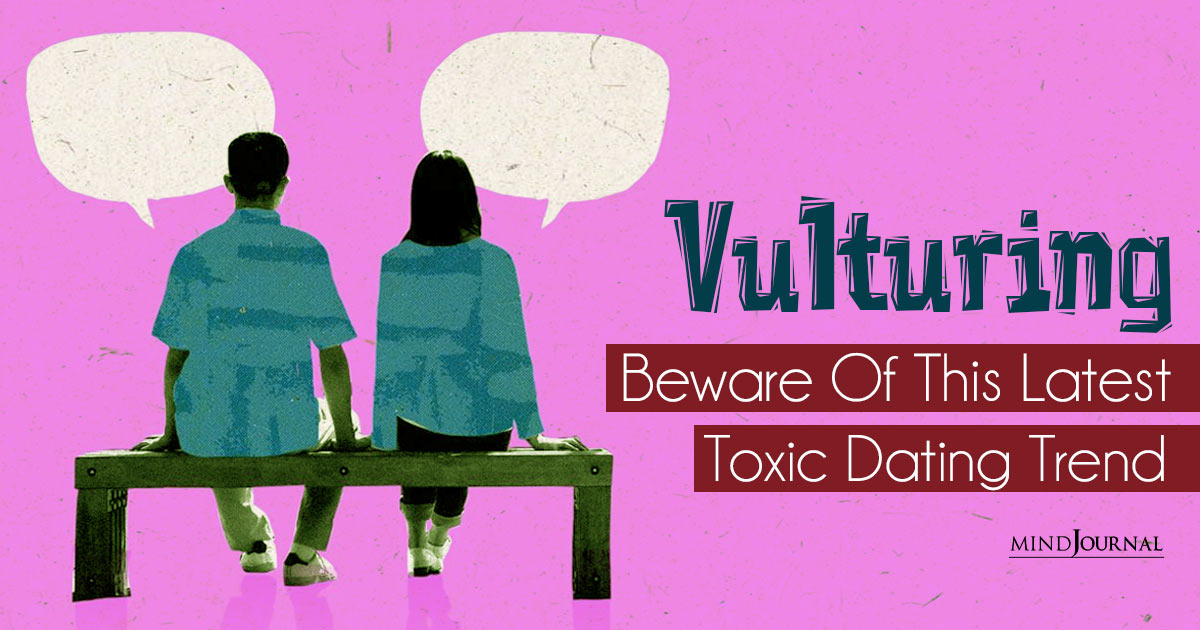
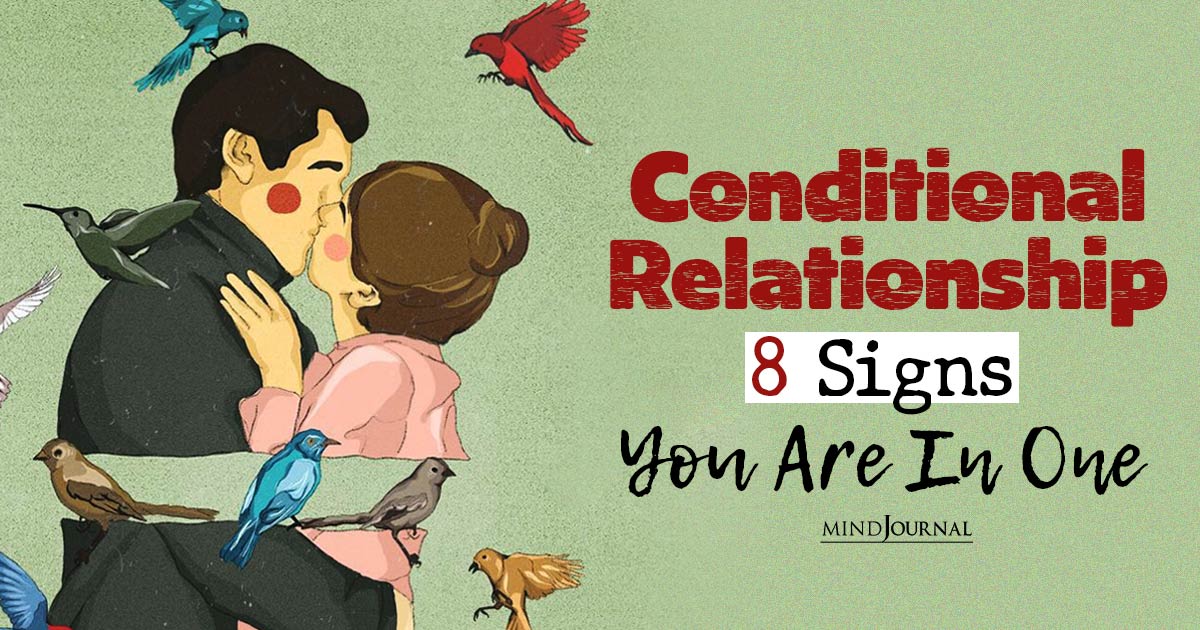


Leave a Reply
You must be logged in to post a comment.